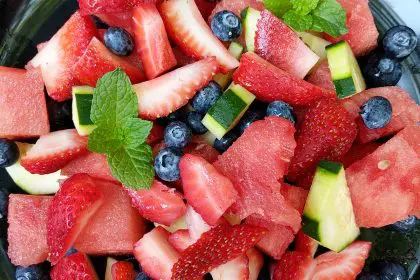As the temperatures drop and winter settles in, it’s the perfect time to rethink your vegetable choices. Winter vegetables are unique in that they can withstand cold weather, making them not only resilient but also packed with nutrients. Unlike summer vegetables like zucchini and eggplant, which are sensitive to frost, winter vegetables such as kale, carrots, and beets thrive in chilly conditions. This article explores the best winter vegetables to incorporate into your diet, highlighting their health benefits and delicious ways to prepare them.
Why choose winter vegetables?
Eating seasonally isn’t just a passing trend; it’s a way to ensure you’re getting the freshest produce available. Winter vegetables are harvested in colder months, meaning they are often fresher and more flavorful. These vegetables are packed with essential vitamins and minerals that can help boost your immune system during the colder months, making them an excellent choice for your winter diet.
Top winter vegetables to try
Here’s a list of some of the most nutritious winter vegetables to consider adding to your meals:
Kale
A member of the cruciferous family, kale is a hardy leafy green that thrives in cold weather. It’s rich in vitamins A and C, fiber, and antioxidants. Kale can even taste sweeter after a frost, making it a perfect addition to salads, soups, or sautéed dishes.
Spinach
Another leafy green that survives freezing temperatures, spinach is loaded with vitamins C and E, which act as antioxidants. One cup of cooked spinach provides a significant portion of your daily vitamin needs, helping support your immune system during the winter months.
Brussels Sprouts
These mini cabbages are not only delicious but also high in fiber and vitamin K. After a frost, Brussels sprouts’ flavor deepens, making them perfect for roasting, sautéing, or adding to casseroles and salads.
Potatoes
A staple in many diets, potatoes can be stored for months and are an excellent source of fiber, vitamin C, and potassium. They can be prepared in a variety of ways, from mashed to roasted, making them a versatile addition to winter meals.
Carrots
Known for their natural sweetness, carrots become even sweeter after exposure to cold. They are high in vitamin A, essential for maintaining eye health and immune function, making them a great winter snack or side dish.
Swiss Chard
This leafy green is packed with potassium and magnesium, which are vital for heart health. Swiss chard can be sautéed with olive oil and garlic or added to soups and stews for a nutritious boost.
Parsnips
Similar to carrots but with a unique flavor, parsnips are high in fiber and vitamins. They can be roasted, mashed, or pureed into soups for a comforting, nutritious side dish.
Leeks
A member of the allium family, leeks have a mild flavor that works wonderfully in soups, stews, and broths. They are rich in vitamins K and manganese and add a savory depth to winter dishes.
Rutabagas
These root vegetables are sweet with a slightly peppery flavor. High in vitamin C, rutabagas can be roasted, mashed, or added to soups and stews to complement the hearty flavors of winter.
Cabbage
Cabbage is a cruciferous vegetable high in fiber and antioxidants. It can be used in soups, salads, or fermented as sauerkraut. Its versatility makes it a winter essential in many kitchens.
Daikon
This mild, crunchy winter radish is perfect for salads or stir-fries. Low in calories but high in vitamin C, daikon adds a refreshing crunch to your meals.
Beets
Known for their vibrant color, beets are high in nitrates, which can improve blood flow and lower blood pressure. Roasted or sliced in salads, beets offer a sweet, earthy flavor perfect for winter meals.
Cauliflower
Cauliflower is incredibly versatile and can be used as a low-carb substitute in many dishes. It’s rich in vitamins and antioxidants and can be roasted, mashed, or turned into cauliflower rice.
How to incorporate winter vegetables into your diet
Incorporating these nutritious winter vegetables into your meals is easier than you think. Here are some simple ideas:
- Add potatoes, carrots, and chopped kale into hearty soups and stews.
- Roast beets and carrots for a colorful and nutritious side dish.
- Create fresh salads using spinach and kale as a base.
- Sauté Swiss chard with olive oil and garlic for a quick side dish.
- Use leeks to enhance the flavor of egg dishes or broths.
- Slice fresh daikon and carrots to serve with a tangy yogurt dip.
Conclusion
Winter vegetables are not only resilient but also incredibly nutritious, making them an excellent choice for your winter meals. By choosing seasonal produce, you can enjoy fresh flavors while boosting your health. So, stock up on these cold-hardy vegetables and get creative in the kitchen this winter!

















